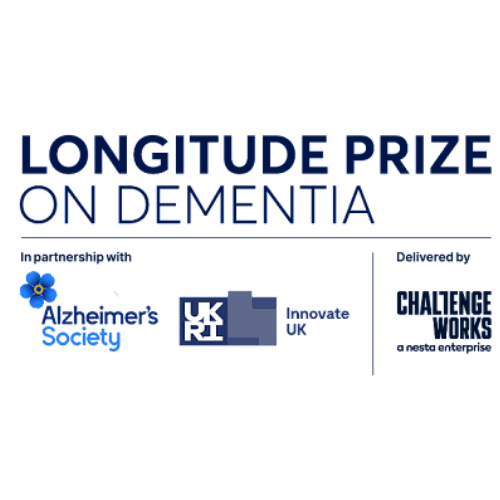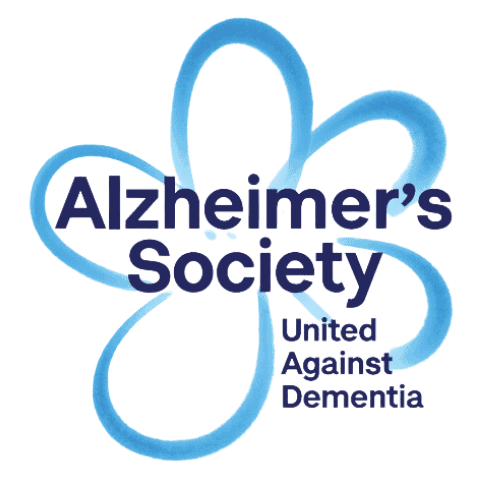How digital therapeutics play a part in person-centered care planning success in dementia, and a look ahead at the CMS GUIDE model: good news for caregivers!
Dementia care planning involves creating a comprehensive strategy to address the evolving needs of individuals with dementia and their caregivers. A well-thought-out care plan helps ensure that individuals with dementia receive high-quality, person-centered care while supporting their caregivers in managing the challenges associated with caregiving for someone with dementia.
Challenges
Care planning for dementia poses several challenges due to the progressive nature of the disease, the complexity of care needs, and the diverse range of symptoms and behaviors exhibited by individuals with dementia.
Depending on the stage of dementia, communication difficulties can arise. Care planning may be complicated by the individual’s inability to express their needs, preferences, and concerns effectively, requiring alternative methods of communication and observation.
Complex Care Needs: Individuals with dementia often have complex care needs that encompass medical, functional, psychological, and social aspects. Care planning must address multiple domains of care, including cognitive stimulation, assistance with activities of daily living, medication management, behavioral management, and emotional support.
Safety Concerns: Individuals with dementia are at increased risk of accidents, injuries, and safety hazards due to cognitive impairment, mobility issues, and behavioral symptoms. Care planning must prioritize safety measures to prevent falls, wandering, medication errors, and other risks to the individual’s well-being.
Challenging Behaviors: Behavioral symptoms such as agitation, aggression, wandering, and hallucinations are common in more advanced stages of dementia and can pose significant challenges for caregivers. Care planning must include strategies for managing challenging behaviors, de-escalating crises, and ensuring the safety of both the individual with dementia and their caregivers.
Caregiver Burden: Caregivers of individuals with dementia often experience high levels of stress, burden, and burnout due to the demands of caregiving. Care planning should address caregiver needs and provide support services, respite care, and coping strategies to help alleviate caregiver burden and promote caregiver well-being.
Lack of Resources: Access to dementia-specific resources, support services, and trained professionals may be limited, particularly in rural or underserved areas. Care planning may be constrained by the availability of community resources, specialized dementia care programs, and funding for supportive services.
Care Navigation within the new CMS GUIDE dementia reimbursement program
GUIDE Model:
Key GUIDE Requirements:
- 24/7 caregiver support
- Caregiver training
- Up to $2500/caregiver/year in respite fees to reduce caregiver burden and improve quality of life for those living with dementia.
- Caregivers to receive care navigation advice and services
- All provided to caregivers at no cost (and no co-pay)
- Starting July 2024.
In 2023 the Centers for Medicare Services announced a new program to support those caring for seniors with respite care for the caregivers. It affords those who meet the criteria up to $2,500 a year in funding to use for assistance such as in-home care, day centers, and overnights in 24/7 care settings.
For the purposes of the GUIDE Model, a caregiver is defined as a relative or unpaid nonrelative who assists the beneficiary with activities of daily living and/or instrumental activities of daily living. This applies to beneficiaries on Medicare (not Medicare Advantage, Medicaid, or PACE).
Beginning in Summer 2024, CMS is expected to release information about which dementia care organizations will be part of the program and how caregivers can apply. The program aims to offer comprehensive care to those with dementia while advancing health equity, supporting innovation, and addressing the financial burden for people with dementia and their unpaid caregivers.
While there is no minimum number of beneficiaries each participating clinician must take on in order to remain in the program, according to cms.gov, Participants (Dementia Care Providers or DCPs) will be strongly encouraged, but not required, to have at least 200 aligned beneficiaries by the end of the second model performance year and maintain at least 200 aligned beneficiaries throughout the model. This represents a target of 200 caregivers per Dementia Care Provider under GUIDE being supported.
One of the model’s requirements is that Participants (Dementia Care Providers) train and provide Care Navigators services at no charge to caregivers. In addition to the normal challenges and obstacles of care planning in dementia, Care Navigators are required to provide guidance on all 5 tiers of dementia as defined by the care model and assist the caregiver in managing common behavioral changes due to dementia.
GUIDE Participants’ Care Navigators will also be required to keep and provide in-home respite options for the beneficiaries and their caregivers. This respite option aims to alleviate the burden on caregivers by allowing them to take a break.
As part of person-centered health equity plans, Care Navigators must also be trained to provide culturally competent care. This often means that the resource includes people who speak the beneficiary’s language and are aware of their culture’s preferences, limitations, and celebrations.
How Digital Therapeutics like Memory Lane Games Play a Part in meeting GUIDE Model requirements:
- Engagement: Memory Lane Games utilizes personalized and localized games to not only trigger positive memories but also foster improved socialization, addressing social isolation
- Health equity support with multi-national, multicultural and localized engaging content (games on familiar topics) for populations including veterans, rural and indigenous and other underserved communities when it comes to dementia care
- Apps providing both 24/7 support for caregivers (calm/distract,engage and talk) and training videos created by dementia nurses and Speech and Language Pathologists who use the app daily in their practices
Digital therapeutics can be delivered to the individual through technology as an intervention and management tool for physical well-being, cognitive stimulation, emotional and mental health, chronic disease management, and personalized care plans.
Memory Lane Games is a Mayo Clinic/ASU award-winning digital therapeutic platform offering accessible, easy-to-use support for those with dementia, their caregivers, and their in-home respite team. Currently, the Memory Lane Games application is utilized in care facilities, dementia programs, and in-home settings around the United States, Canada and the United Kingdom.
Memory Lane Games uses evidence-based therapeutic interventions driven by specialized software that help patients and care teams manage specific health needs and improve clinical outcomes through dementia-specific games. This makes it an adaptive solution tailored to individual needs. More specifically, it makes more effective care planning in the following ways:
- Personalization of supplemental care tailored to cultural and personal interests.
- Gameplay improves bonding and connection when played with caregivers and in-home care providers.
- Using gameplay during times of needed distraction can reduce agitation any time of day or night (i.e. sundowning)
- Outcomes
- The care plan is more effective for the person with dementia and their caregivers.
- Health Equity is supported through cultural-specific game options
- Available Nationwide, users have unlimited access to the application’s therapeutic measures with content on their communities and familiar places, interests, hobbies and more.
Digital therapeutics can be especially powerful when implemented alongside in-home care. Memory Lane Games provides training for homecare staff so they can confidently deploy it as a holistic solution. The app can be used 24/7, so overnight wandering can be redirected, and playing together provides the caregiver interaction the person may seek out. Sundowning can also be addressed with Memory Lane Games as a distraction intervention with fun games, designed to improve positive socialization with personalized content.
GUIDE-eligible beneficiaries with dementia may not be used to new caregivers entering the home and taking on a role normally provided by their family members or friends. In-home care companies often have staffing issues and high turnover due to the physical and emotional demands of the job. Agitation and reluctance in disrupted routines can prevent the caregiver from fully bonding with the person with dementia or keep them from providing efficient care altogether, highlighting the need for respite care for the caregivers!
Digital therapeutics can assist in monitoring vital signs and medication adherence and providing real-time feedback to healthcare professionals. Memory Lane Games can track changes in behavior and alert caregivers to potential changes through gameplay data. This proactive approach could help to reduce complications that could require hospitalization.
For example, a person with dementia regularly plays the Memory Lane Games app (30 minutes a day) with their caregiver, an engaging, fun, calming activity designed to improve socialization. While checking the game-play data, the caregiver noticed the person with dementia was unable to answer questions they normally knew, indicating some new confusion. The caregiver could then share this with the clinical team who determines if an intervention may be warranted, potentially finding early signs of a urinary tract infection and is able to treat it right away, preventing complications, including falls, further confusion, and hospitalization.
Positive impacts
The challenges of care planning require a collaborative, multidisciplinary approach that involves healthcare professionals, caregivers, social workers, and community organizations working together to develop and implement comprehensive care plans that meet the unique needs of individuals with dementia and their families.
Digital Therapeutics can play a major role in the prevention and elimination of some of these challenges. Memory Lane Games, in particular, can also help CMS GUIDE Participants meet the qualifications of the program.
If you are interested in learning more about how Memory Lanes Games can aid in the success of personalized care plans, access tools to help alleviate challenges of in-home care, and to support for meeting GUIDE requirements for 24/7 caregiver support/training, and health equity plans, please contact us at [email protected]






















